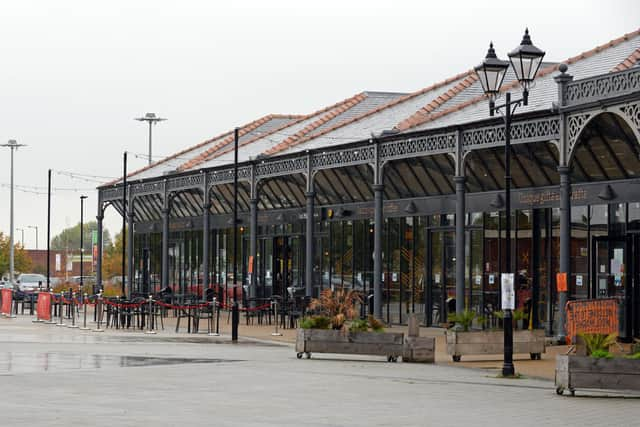Doncaster Wool Market traders told to accept rent increase based on turnover - or be evicted
Market Asset Management (MAM), which took over management of all of Doncaster’s markets in 2019, sent a letter explaining rent rises to all existing traders.
It states that the company is aiming to bring in new businesses that agree to hand over 20 per cent of their turnover in rent.
Advertisement
Hide AdAdvertisement
Hide AdExisting traders are then asked to eventually accept the same, through a staggered rent increase.


Traders are asked to accept a rise to 10 per cent in the first year of the contract, and 20 per cent by year three, plus VAT.
The letter is backed by Doncaster Council, which contracts MAM to run Doncaster’s markets.
It reads: “As you are aware, rent increases have had to be implemented across the market estate as a result of rising costs in running and operating Doncaster Markets.
Advertisement
Hide AdAdvertisement
Hide Ad“The Wool Market has for some time operated at a considerable loss due to the low rent contracts with which the market was established.
“The Wool Market has since become extremely successful, with much higher turnover for vendors than was expected, and your business is an integral part of that success.
“However, it is no longer fair or possible for the Wool Market to be subsidised by other areas of the market, particularly when the businesses operating in the Wool Market are achieving such high income levels.
“Following discussions with Doncaster Council, alongside the wider rent increases across the estate, we have agreed that changes need to be implemented within the Wool Market.”
Advertisement
Hide AdAdvertisement
Hide AdThose who do not accept the rent rise will be served six months notice to leave.
A group of Wool Market traders told the Doncaster Free Press that the rise will see the rent of some traders increase to £40,000-£70,000, with additional VAT.
Earlier this year, traders accepted a 10 per cent increase on their current fixed rent and utilities, followed by the addition of VAT.
A spokesperson for Market Asset Management said: “The Wool Market kitchens and bars operate on a turnover-based rent which is normal for food hall models to support the weekly free entertainment and marketing the visitors to the Wool Market enjoy, in addition to electricity, staffing, security, heating, water, cleaning and building maintenance costs. There are no yearly adjustments made for inflation, nor is there an ability to renegotiate rents.
Advertisement
Hide AdAdvertisement
Hide Ad“A small number of the tenants are on original leases which means they only pay a tiny percentage of their turnover in rent compared to the rest of the tenants, while benefiting from all of the work put into making the Wool Market a success. Because of this, the Wool Market’s operating costs must be subsidised by the rest of the Doncaster Market estate.
“The businesses on these original leases turned over nearly £1.2m last year but only paid £52k in rent, making it unfair for the rest of the Wool Market businesses and the market traders across the whole market estate.
“Following discussions with Doncaster Council, we have agreed to write to these businesses as part of our wish to renegotiate these leases to gradually bring them in line with the rest of the Wool Market and the wider industry.
“We hope existing Wool Market traders will stay and agree the new rent contracts.
Advertisement
Hide AdAdvertisement
Hide Ad“Doncaster Market is home to fantastic independent traders who are a big part of our success as a venue where people love to come and shop, eat, drink and be entertained and we are sorry we have had to take this step, but we must be fair to all traders and the rising costs we are seeing.”
Drew Oxley, head of trading services at Doncaster Council, added: “This is a targeted approach to a number of traders within the Wool Market and sympathetic to turnover levels.
“The Wool Market has extremely successful profitable turnover rents to contribute to the running costs and it is no longer fair for the Wool Market to be subsidised by other areas of the market.
“We have always worked hard to keep rent increases to a minimum but with rising costs in running and operating Doncaster Markets, this is not something we can sustain in what are increasingly challenging times for all of us.”
Advertisement
Hide AdAdvertisement
Hide AdThe Grade II-listed Wool Market had become rundown before a major regeneration project that saw the demolition of another old market building nearby to open up public space, and a restoration of the Victorian interiors. Rather than traditional stalls, managers’ focus switched to attracting street food vendors for a new food court, and there is also an events space with regular live music. The Wool Market re-opened in 2019.